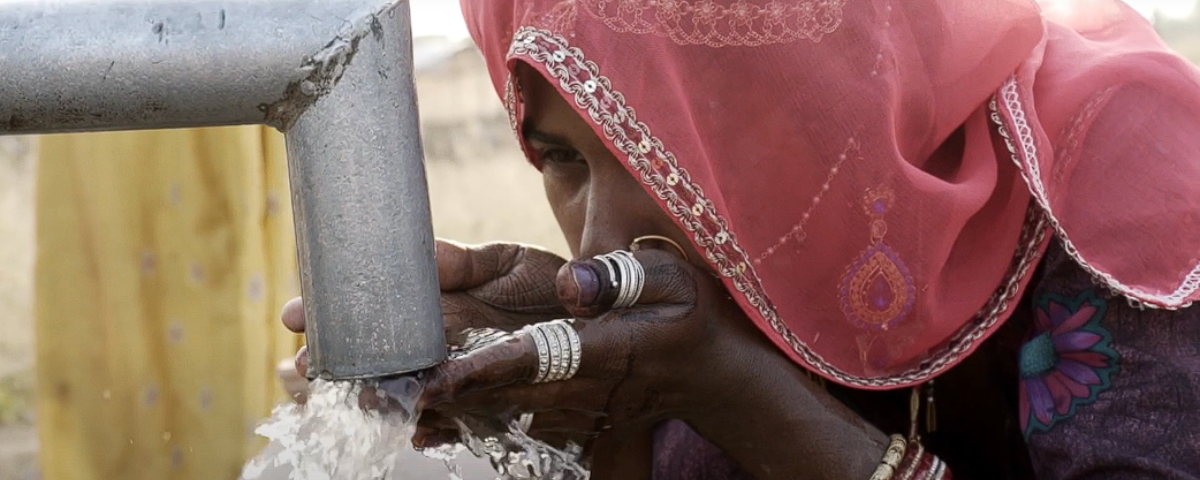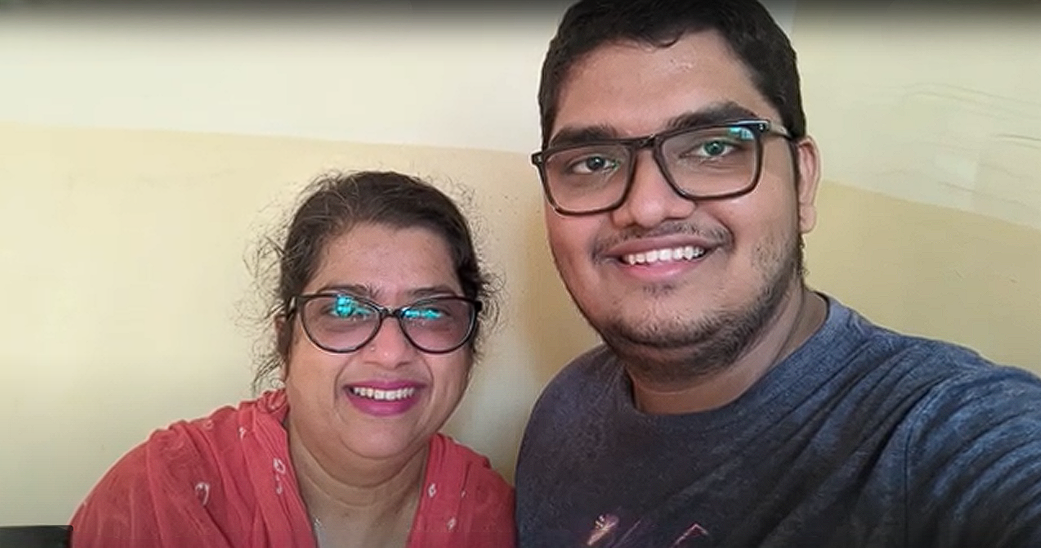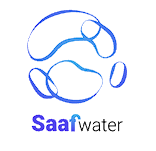




Keep this story going! Share below!
SaafWater is transforming public health technology by making clean water access reliable through its intelligent monitoring system. Its proprietary sensor interface converts traditional pipelines into real-time, self-monitoring networks, enabling utilities to detect issues proactively instead of reacting to crises. This innovation supports SDG 6 and SDG 9 by protecting public health, extending infrastructure life, and modernizing water management with actionable insights.
SaafWater is redefining the landscape in public health technology by directly addressing a long-standing challenge: delivering reliable access to clean water. Traditionally, water utilities were forced to choose between waiting days for trustworthy lab results, dragging out response times, or investing heavily in high-tech sensors that often failed to deliver consistent results and rarely lasted beyond a few months. SaafWater shattered this deadlock by introducing a groundbreaking intelligent monitoring system to prevent waterborne disease and preserve critical infrastructure.
At its core, the innovation is a proprietary sensor interface that transforms passive, "analog" water pipelines into active, self-monitoring networks, providing real-time data on water quality. This technology empowers water utilities to move from a reactive, crisis-management model to a proactive, evidence-based stewardship of their most vital resource, extending equipment life, optimizing chemical use, and providing actionable insights for utilities. This innovation advances SDG 9 by modernizing critical infrastructure and SDG 6 by safeguarding public health through reliable, affordable water monitoring. SaafWater enables water utilities to detect contamination in real time and respond before health or infrastructure is compromised. Unlike conventional systems requiring frequent recalibration, SaafWater's technology combines ruggedized sensors with a proprietary interface that reduces calibration needs from monthly to yearly while maintaining laboratory-grade accuracy. This dramatically cuts the need for expensive technicians and lab tests, making it cost-effective, reliable and affordable for large-scale use. The devices can run on solar power and communicate through specialized Internet of Things (IoT) SIM cards that function even in weak coverage areas. This makes them deployable in urban centers and remote villages alike. AI-powered self-correction ensures that false alarms are minimized and that utilities can trust the data. By merging IoT, AI-driven analytics, and sensor optimization, SaafWater is redefining water safety monitoring for a healthier and more sustainable future.
The innovation is already in action. Today, SaafWater operates under a clear and powerful mission: to safeguard public health and create a world where every tap delivers unequivocally safe water. This vision reflects a deep commitment to societal change through technological innovation and social responsibility. In partnership with the Goa Public Works Department, SaafWater monitors 516 million liters daily across 20 treatment plants, flagging an average of ~13 monthly contamination events. By preventing overdosing of chemicals, the system has extended pipeline lifespans from five years back to thirty, saving governments thousands of crores in avoided replacements.
Looking ahead, the company is developing its own lab-on-chip sensors to make water quality diagnostics even more accessible. By combining advanced AI with reliable real-time data, SaafWater aims to replace traditional water testing labs by 2027 and revolutionize global water management by 2030.

Hrishikesh Bhandari (left) and his mother (right) in 2022
The journey of SaafWater began not in a lab or a boardroom, but with a moment of personal crisis that planted a seed of doubt. In 2020, founder Hrishikesh Bhandari's mother fell seriously ill from contaminated water despite the family owning a purifier. "That was the moment I realized we trust our phones, our banks, even our taxis more than we trust our water," he reflected. "If the most essential infrastructure is unreliable, how can families feel safe?"
This crisis prompted Bhandari and his co-founders to look closely at India's water diagnostics system. What he discovered was a system plagued by inefficiency and hidden costs. He learned that water pipes designed to last 30 years were being replaced in as little as five years due to corrosion from excessive chlorine which was a crude but necessary measure taken by utilities "flying blind" without real-time data. The financial toll was staggering, with municipalities facing huge reinvestment costs. This journey, from a single sick parent to a multi-billion-dollar infrastructure crisis, illuminated the true scale of the problem. The inspiration for SaafWater was forged in this crucible, where a personal story collided with a systemic failure, igniting a deep-rooted commitment to build a solution that could restore trust in every drop. "We were treating water with 19th-century methods in a 21st-century world," Bhandari said. The gap was clear: utilities needed affordable, reliable, real-time monitoring.
With engineering and data science backgrounds, the team set out to design a system built for India's realities: irregular electricity, limited budgets, and a scarce skilled workforce. Limited funding initially slowed their progress, but the team refined their technology through persistence and pilots over two years. Their resilience was fueled by a vision of transforming water quality monitoring into a preventive and scalable solution and restoring trust in water for families like Bhandari's and millions of others.
Integrating SaafWater’s technology has ushered in a new era where innovation strengthens essential infrastructure and safe water flows with certainty. In Goa, the system now oversees 20 treatment plants and 516 million liters of water daily, reaching 1.5 million people. What makes this remarkable is not only its scale, but the way it blends cutting-edge monitoring with resilient infrastructure, ensuring that pipes can last their full 30-year lifespan instead of failing in just five. By enabling precision chemical dosing, the SaafWater allows utilities to save significant maintenance costs and prevents the corrosive damage that eats away at our vital infrastructure, conserving precious water that would otherwise be lost to leaks. The company's system also cuts carbon emissions by reducing the need for motorbike couriers and sample transport to labs, showing how technology can future-proof infrastructure for generations.
At the same time, SaafWater is redefining what clean water access means in everyday life. Households no longer face chlorine odors or uncertainty, but the reassurance of consistent, safe water. This is more than data on a dashboard, it’s the lived experience of communities turning on the tap with confidence.
Uniting innovation with clean water, SaafWater not only restores trust but also demonstrates a path forward: one where sustainable infrastructure and safe water access go hand in hand, delivering long-term health, resilience, and dignity to millions. Over time, as the company expands into metros like Hyderabad, Bengaluru, and Pune, this certainty will reach millions more. SaafWater stands as a beacon of hope, reassuring communities that their most essential resource is protected by a system prioritizing their safety and well-being.
Because SaafWater built a system that works in India's most challenging conditions at one-fifth the cost of global alternatives, it has unlocked a large and underserved market. SaafWater's development and successful deployment have fulfilled a critical public health need and positioned the company as a leader in a new category of infrastructure technology. This leadership in a vital sector has opened new markets, providing a powerful and unique proof-of-concept that overcomes the significant trust barrier in the B2B2G (Business-to-Business-to-Government) sector. This business model allows it to sell hardware and subscription services to operations partners managing government utilities, avoiding long government payment cycles while accessing large contracts.
Revenue is generated through hardware sales and monthly subscriptions of the device. With the upcoming lab-on-chip technology, the company will reach smaller utilities and open new markets. The introduction of this technology has expanded SaafWater's customer base from municipalities to industrial clients in sectors like F&B and pharmaceuticals, diversifying the company's revenue streams.
These innovations have strengthened investor confidence. After winning IBM's Global Call for Code challenge, SaafWater received technical support, global visibility, and partnerships with Arrow Electronics and the Linux Foundation. Arrow Electronics strengthened the hardware supply chain, while collaboration with the Linux Foundation ensured that SaafWater's data streams could integrate with open-source platforms for urban planning and climate modelling. This meant SaafWater wasn't just serving utilities but also enabling new innovations in public health, smart cities, and climate resilience. Health agencies could use its data to predict waterborne outbreaks. City planners could incorporate it into housing and sanitation projects. Researchers could model contamination risks tied to flooding or drought. This ecosystem has positioned the startup not just as a vendor, but as a credible global innovator in infrastructure. The company's mission-driven approach aligns with the growing trend of socially responsible investing, making it an attractive option for partners keen on supporting businesses with a positive social impact. The company is not only digitizing water utilities; it is creating an entirely new platform for industrial innovation, one that ripples outward into multiple sectors.
From an internal perspective, working for a company like SaafWater, which directly contributes to improving society, enhances employee well-being, and fosters a sense of pride and motivation. This positive work environment and the company's growth and success make SaafWater an attractive employer, aiding in talent acquisition and retention.
SaafWater's innovation offers a profound and practical gift to society: the gift of certainty. In a world where water safety is an ever-present concern, its technology provides the foundation for healthier families and more resilient communities. This is more than just a technology; it is a foundational step towards a world where every person has access to safe drinking water, our rivers and lakes are protected from pollution, and this precious resource is managed efficiently to sustain future generations.
SaafWater has made water monitoring reliable and affordable, protecting families from waterborne illness and giving communities confidence in their basic needs. It also contributes to public health by generating datasets that can be used to predict outbreaks and support urban planning.
By empowering utilities with real-time data, SaafWater helps ensure that the water flowing into homes is consistently safe, reducing the burden on healthcare systems and allowing public funds to be allocated more effectively. The environmental benefits are just as powerful. SaafWater reduces chemical waste, prevents over-chlorination, and extends infrastructure lifespans, cutting down on resource-intensive repairs and replacements. Reduced reliance on sample transport lowers carbon emissions. At the same time, solar-powered devices make the system sustainable even in low-resource environments.
The most significant societal benefit is trust. As Bhandari often reflects, "One drop of contaminated water can sicken families, disrupt industries, and quietly erode economies. The systems we build today will decide whether the next generation inherits resilience or crisis."
As climate change intensifies water stress globally, this technology is vital for building resilience, helping communities better manage an increasingly scarce resource. In essence, SaafWater's innovation transcends business success. It provides a replicable blueprint for the developing world, contributing to a healthier, more sustainable, and more environmentally conscious global society. For the mother who can now turn on her tap without worry, that trust is transformative. And when scaled across millions of households worldwide, it represents safer water and the democratization of infrastructure intelligence.
Get stories of positive business innovations from around the world delivered right to your inbox.

SaafWater is a mission-driven enterprise revolutionizing water safety. Headquartered in India, SaafWater is tackling a critical yet often overlooked challenge: ensuring access to clean, safe drinking water. Established in 2020 by Hrishikesh Bhandari and his team, the company delivers cost-effective, AI-driven water monitoring solutions designed for large-scale implementation. Their platform equips governments, enterprises, and communities alike with the tools to maintain water quality standards efficiently. Currently, SaafWater's solutions are actively safeguarding the water supply for over 1.5 million residents in Goa, providing assurance that every household receives water that's both reliable and contamination-free.